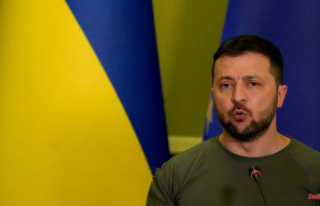Emmanuel Macron urged France to give a solid majority to the country, in the name "the higher interests of the nation", Tuesday, June 14, from Orly airport. He was flying to Romania and Moldova.
"We live in an age of choices, and great decisions are not made by abstention. On the airport tarmac, he said, "I appeal to your commonsense and to the Republican leap", believing that "Sunday should not be missing from our Republic."
He declared, "Neither abstention nor confusion, but clarification" in a solemn tone before going to a NATO base near Romania to meet 500 French soldiers there, as well as to conduct a support visit in Moldova and possibly a trip to Kyiv.
"I want you to convince me today to give the nation a solid majority Sunday," explained the head of state. He stated that he needed a solid majority "to ensure order outside and within". Within our borders. He warned that "nothing would be worse" than adding a French disorder into the world disorder, and called for "forceful freedom, equality, fraternity and secularism" with firmness.
He said, "We must defend institutions against all who challenge and weaken" and seemed to be referring to the RN or Nupes oppositions.
He said he had heard the "difficulties which were expressed" in Sunday's first round. The outgoing majority was neck-and-neck with the Nupes at the National Rally. This result does not guarantee that the president will be able to count on an absolute majority during his second five year term.
"Faced by the crises which are certain to arise, nothing could be worse than losing ourself in immobility in blocking, or in postures," said Emmanuel Macron. He insists, as he stands in front of the plane that takes him on his first tour of the region of south-east Europe directly affected at the end February by the invasion of Ukraine.












